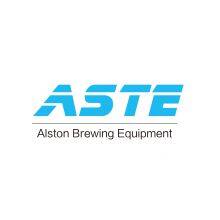10HL 5HL Automated Brewhouse Equipment
USD $50000 - $80000 /Set
Min.Order:1 Set
Quick Details View All >
Jinan Alston Equipment Co., Ltd.
Product Details
The automation of these functions not only ensures a higher quality of beer but also allows breweries to operate more efficiently, reducing wastage, and increasing profitability.
Standard Setup
● Grain handling: whole grain handling unit including mill, malt transfer, silo, hopper etc.
● Brewhouse: Three, Four or Five vessels, the whole brewhouse unit,
Mash tank with bottom stir, paddle type mixer, VFD, with steam condensing unit, pressure and empty flow valve.
Lauter with raker with lift, VFD, automatic grain spent, wort collect pipes, Milled sieve plate, Installed with pressure valve and empty flow valve.
Kettle with steam heating, steam condensing unit, Whirlpool tangent wort inlet, internal heater for optional.Installed with pressure valve, empty flow valve and form sensor.
Brewhouse pipe lines with Pneumatic butterfly valves and limit switch to connect with HMI control system.
Water and steam controled by regulation valve and connect with control panel to achieve the automic water and steam in.
● Cellar: Fermenter, storage tank and BBTs, for fermentation of different kinds of beer, all assembled and isolated, With cat walks or manifold.
● Cooling: Chiller connected with glycol tank for cooling, Ice water tank and plat cooler for wort cooling.
● CIP: Fixed CIP station.
● Control system: Siemens S7-1500 PLC as the basic standard, this is possible to do programming when necessary.
Software will be shared with clients with the equipment together. All electric fittings adopts world famous brand. such as Siemens PLC, Danfoss VFD, Schneider etc.
How Can a Commercial Automated Brewing System Benefit You?
The introduction of commercial automated brewing systems into the beer-making industry has transformed the way breweries operate.
From small craft breweries to large industrial setups, these systems offer a range of benefits that make brewing efficient, consistent, and profitable.
●Efficiency Boost: One of the primary advantages of an automated brewing system is its efficiency.
By automating many of the brewing process's manual aspects, these systems can produce more beer in less time, optimizing production schedules and increasing the volume of saleable product.
●Consistent Quality: In the brewing industry, consistency is crucial. Fans of a particular beer brand expect the same taste, aroma, and mouthfeel every time they crack open a bottle.
Automated systems, with their precise control over ingredients, temperatures, and timings, ensure that every batch matches the previous one in terms of quality.
●Resource Savings: Through precise measurements and control, automated systems can lead to savings in raw materials, energy, and water.
This not only reduces costs but also minimizes waste, making the brewing process more sustainable.
●Real-time Data Monitoring: Modern commercial automated brewing systems come equipped with various sensors and analytics tools.
These tools provide brewers with real-time data about the brewing process, enabling them to make informed decisions and quickly address any issues that may arise.
●Scalability: As a brewery grows, its production needs will change. Automated systems can be scaled up (or down) to match production demands.
Whether it’s adding more fermentation tanks or integrating additional features, these systems can grow with the business.
●Labor Savings: With automation handling many of the tasks previously done by hand, breweries can operate with fewer staff.
This can lead to significant savings in labor costs. Furthermore, staff can be reallocated to other areas of the business, such as sales, marketing, or customer service.
●Safety Enhancements: Brewing involves handling hot liquids, heavy equipment, and sometimes hazardous chemicals for cleaning and sanitization.
Automated systems can reduce the risks associated with these tasks, ensuring a safer working environment.
● Pressure automatic control
● Temperature (Steam) automatic control
● Water/Wort/ Flow automatic control
● Cellar tanks – glycol tank, fermenters, brite beer tanks, etc.
Contact Supplier

You May Like
New Products
Popular Searches
Recommended Products
Find Similar Products By Category